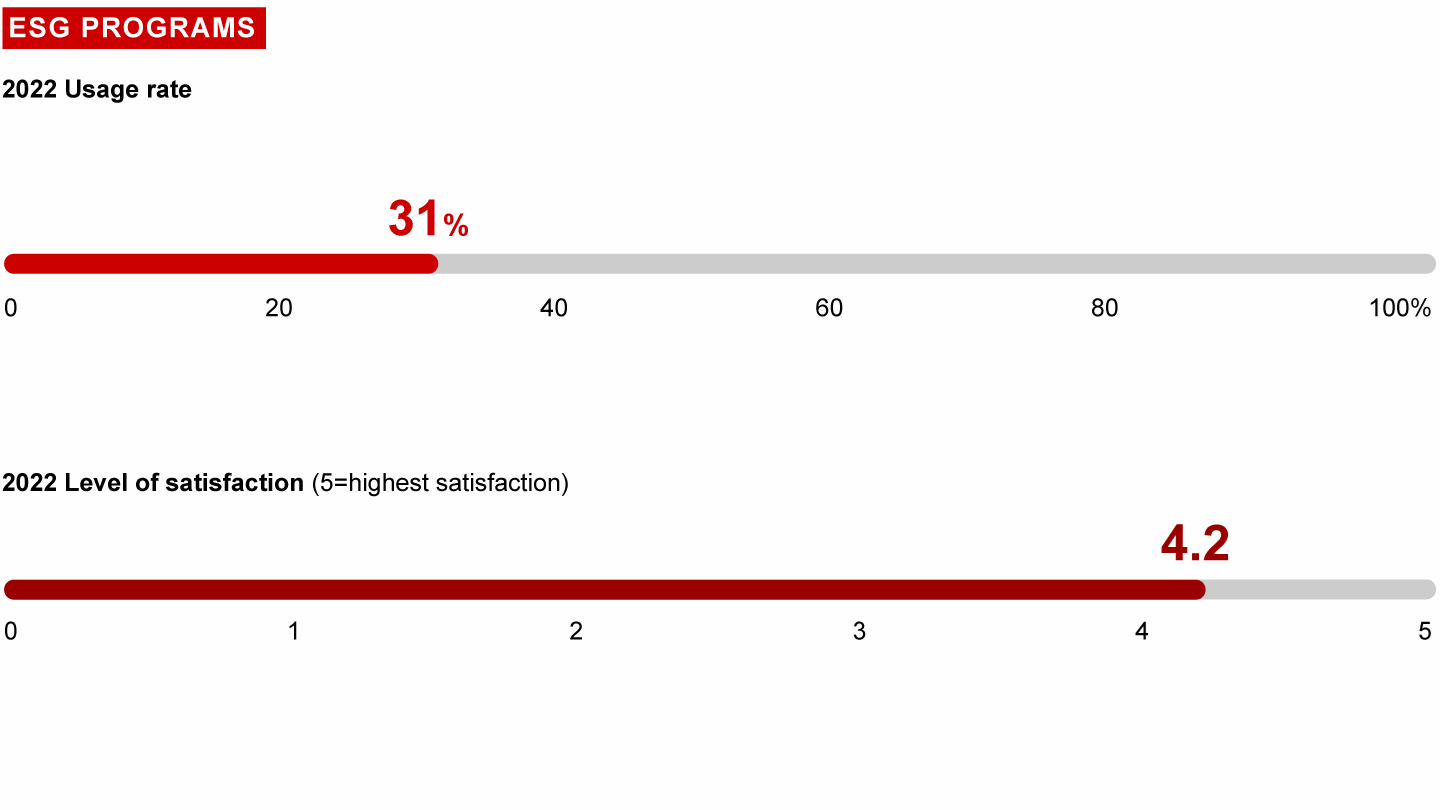Management Tools
What Is ESG?
Environmental, Social, and Governance (ESG) Programs are designed to help companies increase their societal value by looking beyond financial goals to include opportunities and manage risks around environmental sustainability and social responsibility issues. ESG proponents believe that businesses that understand their impact on humanity and take action to address critical ESG issues will set new standards of excellence and be rewarded by their customers, employees, and investors.
Usage and satisfaction among survey respondents


ESG Programs address three aspects of corporate performance:
- Environmental aspects include living within planetary boundaries, covering topics such as greenhouse gas emissions, circularity, and land and ocean use.
- Social aspects encompass committing to equitable outcomes—covering topics such as human rights; health and wellness; and diversity, equity, and inclusion (DEI).
- Governance aspects focus on demonstrating responsible conduct, covering topics such as business ethics, third-party relationships, and tax practices.
How Are ESG Programs Implemented?
Environmental, Social, and Governance Programs require managers to:
- Build leadership commitment
- Develop the case for change informed by understanding company externalities, future-back industry trends, and societal movements
- Analyze and harmonize the needs of all stakeholders, including customers, employees, business partners, local communities, and investors
- Define the ESG Program’s vision, goals, and implementation plan
- Design and implement initiatives to support ESG goals
- Incorporate ESG into corporate development and innovation processes to identify, launch, and scale new ESG businesses, products, and services
- Establish systems, processes, and partnerships to measure and report progress on achieving ESG goals
Related Topics
What Are the Common Uses for ESG Programs?
Companies use ESG Programs to:
- Differentiate their positioning with customers and generate increased sales through an enhanced value proposition
- Reduce costs through more efficient resource use
- Attract and retain talent
- Improve access to capital, increase the company’s valuation, and strengthen investor relationships
- Capture opportunities with new technologies, business models, and ventures
- Reduce reputational, legal, and financial risks

Management Tools & Trends 2023
On the 30th anniversary of our survey, managers seem surprisingly upbeat.